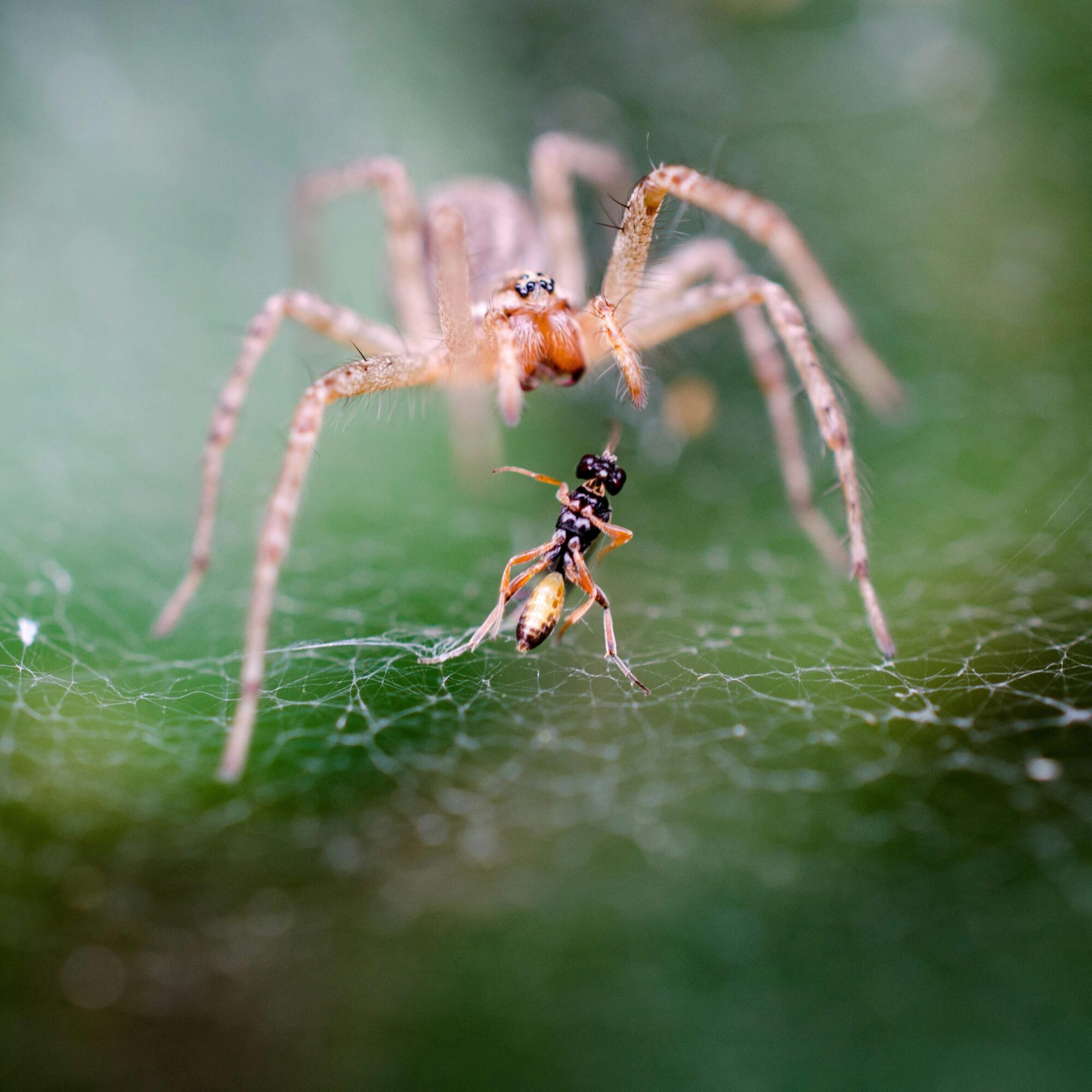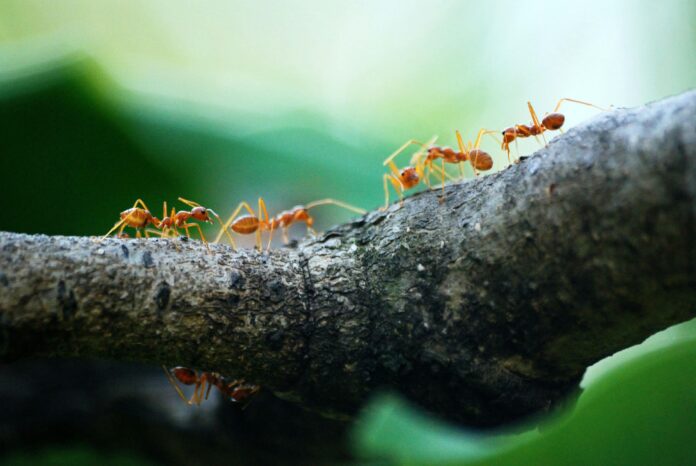Every farmer aims to boost yields, but pests often stand in the way. However, bugs once seen solely as crop destroyers are now vital allies in sustainable farming. From maize fields in Kenya to vegetable gardens in Nigeria, farmers are learning to harness the power of these small creatures to reduce reliance on costly chemicals, enrich soil fertility, enhance pollination and build climate-resilient food systems.
Insects Are Nature’s Pest Control
Insects play a crucial and often thankless role in maintaining healthy ecosystems. Many act as predators or parasites of other bugs, keeping invasive populations naturally in balance. African farmers who understand the power of biological control are now moving away from synthetic chemicals, which many pests have grown resistant to, and instead rely on beneficial bugs to manage crop threats.
For example, aphids damage cereal, legume and vegetable crops by feeding on plant sap and transmitting diseases. In response, lady beetles, found across Africa, have become vital allies. Each adult can consume up to 5,000 aphids in its lifetime. Ground beetles also offer critical protection by attacking soil-borne pests such as cutworms and root maggots, which bore into roots, bulbs and tubers. These are common problems in maize and vegetable production.
Lacewings, particularly in their larval stage, are also aggressive predators of soft-bodied pests like aphids, thrips and whiteflies. They can eliminate aphid populations within two weeks.
Meanwhile, parasitic wasps, such as the Trichogramma species, are widely present in Africa. These lay their eggs inside the eggs of destructive caterpillars and moths, including the notorious fall armyworm. This pest causes widespread damage to maize, sorghum and rice by defoliating plants and destroying ears and grains. Trichogramma wasps serve as a natural line of defense by preventing harmful species from reaching the larval stage.
This eco-friendly strategy helps farmers save money on pesticides and protects human health from chemical exposure. This is especially important given that studies estimate over 70,000 tonnes of harmful chemicals leach into aquifers, which are critical water sources in arid and semi-arid regions.
In addition, natural pest suppression methods preserve soil microbial diversity and protect surrounding ecosystems. Farmers can attract and sustain populations of helpful insects by planting various flowering crops or maintaining vegetated field borders.
Pollinators as Productivity Boosters
Pollination contributes to 35% of global food production, and in Africa, insect pollinators are essential for crops such as tomatoes, beans, cowpeas and melons. Among the most important are carpenter bees, which thrive in tropical climates and serve as generalist nectar feeders. Unlike many other species, they remain active for extended periods each day, pollinating a wide range of plants, including eggplants, tomatoes and flowers.
Swallowtail butterflies are another key group. Their long proboscis allows them to access deep, narrow flowers that many others cannot reach. They are also crucial, especially in facilitating cross-pollination and maintaining genetic diversity across agricultural landscapes, as they can travel longer distances. However, swallowtails are increasingly under threat due to the loss of their host plants.
Planting hedgerows and maintaining field borders with native vegetation can help conserve these valuable pollinators by offering nesting, resting and hiding spaces. Such practices enhance pollination while supporting the overall biodiversity on the farm.
One study found that effective pollination in agriculture-dependent countries like Rwanda could unlock up to USD 100 million in additional crop production value, demonstrating the high economic importance of protecting and promoting nectar feeders in African farming systems.
Soil-Building Insects
Insects also enrich soil by accelerating decomposition and promoting nutrient cycling. While often viewed as pests causing over $2 billion in structural damage annually, subterranean termites play a crucial ecological role. They live in underground colonies, digging elaborate tunnels to access wood and other cellulose-based materials.
Despite their destructive reputation, termites are valuable soil engineers. They modify earth structure, improve water infiltration and improve fertility. As detritivores, they feed on dead plant material such as wood, leaves and other organic matter and recycle nutrients back into the ground. Using termite mounds to improve soil fertility is a long-standing practice in rural, low-income and indigenous communities across the African savannahs.
Ants and beetles contribute significantly to soil health through tunnelling and decomposition activities. Dung beetles, in particular, improve porosity and can increase water infiltration by up to 300%, allowing water to penetrate more deeply into the ground.
How to Build Resilient Farm Ecosystems With Insect Allies
African farmers can actively design landscapes that attract and sustain these beneficial bugs to build a resilient farm ecosystem.
1. Plant Flowering Crops
Start with native flowering plants such as African milkweed, cowpeas and sesame along field borders or between rows to help attract diverse pollinators. Plant a range of flower shapes and colours with different bloom times to provide a continuous food source of nectar and pollen.
- Install Beetle Banks
Beetle banks — raised strips of native grasses approximately 40 to 50 centimetres high and 2 metres wide — serve as shelter for ground beetles that prey on cutworms and root maggots. Maintaining hedgerows with indigenous shrubs and trees like acacia or moringa provides nesting areas for parasitic wasps and lacewings. Leaving hollow stems and undisturbed plant litter also creates microhabitats for overwintering insects.
- Target Pesticide Use
If pesticides are still necessary, avoid blanket spraying. Instead, targeted methods can be applied using traps or organic treatments like neem oil, which help protect useful insect populations. Crop rotation and interplanting legumes further disrupt their lifecycles and enhance topsoil fertility.
By encouraging pollinators, predators and decomposers, farmers reduce reliance on chemical inputs, build natural pest resistance, and improve overall farm resilience to climate stress and disease outbreaks. A thriving insect population strengthens the farm’s entire ecological foundation.
Economic Upside of Insect-Based Farming
Insect-based farming helps reduce reliance on synthetic inputs. Fewer pesticide sprays lower labour costs, fuel use and equipment wear. This protects the health of farmworkers and supports soil biodiversity, enhancing long-term sustainability. Eco-farmed crops command 22% to 35% higher prices in urban African markets, with growing demand from export buyers for chemical-free produce.
Farmers can adopt innovative technologies to strengthen insect-based eco-farming further. Solar-powered irrigation systems can sustain wildflower borders and beetle banks during dry
seasons, maintaining crucial insect habitats. AI-powered pest identification apps also enable farmers to distinguish between beneficial and harmful bugs using smartphones.
Turning Insects From Pests to Partners
Tiny as they may be, these creatures play a decisive role in modern sustainable farming. They protect crops by preying on threats, enrich the soil through natural activity and increase yields. These crawling and flying friends are helping solve some of Africa’s biggest agricultural challenges, and all they need in return is a healthy, thriving habitat.
With the right blend of tradition, innovation and nature-based solutions, Africa’s next green revolution may not come from synthetic chemicals but from the six-legged allies already working in the fields.








